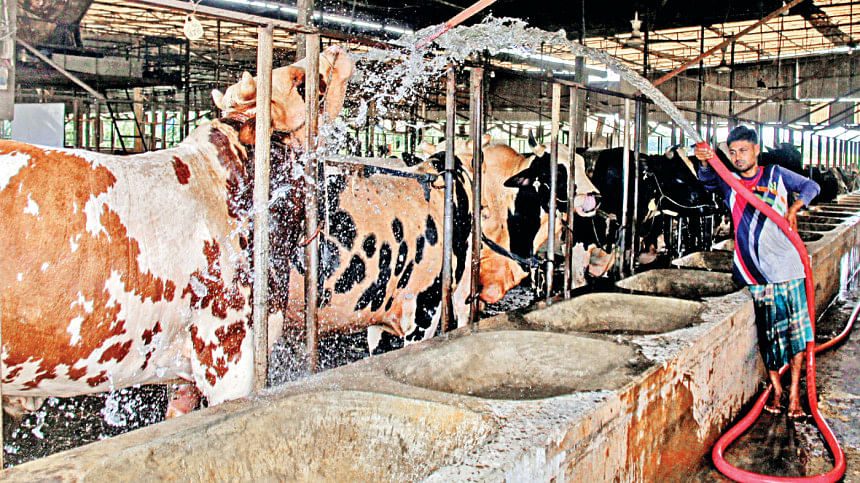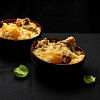Gabtoli Market: Cattle plentiful, buyers scarce

Despite a sufficient number of sacrificial animals available in the country, cattle prices remain high compared to the same period last year.
However, customer turnout at cattle markets has been significantly low, with little impact so far on stabilising prices. Traders and farmers attribute the high prices to the rising cost of cattle feed.
According to estimates by the Department of Livestock Services and the Ministry of Fisheries and Livestock, a total of 1,24,47,337 sacrificial animals are available this year. This includes 56,02,905 cattle and buffaloes, 68,38,920 goats and sheep, and 5,512 animals of other species. An official from the Department of Livestock said there is an expected surplus of approximately 20,68,135 animals this year.
During a visit to the Gabtoli cattle market yesterday, only a small number of buyers were seen. Those who did make purchases paid Tk 15,000 to Tk 20,000 more than last year for similarly sized bulls.
Adnan Rahman, a resident of Adabar who went to buy a bull, said they purchased one for Tk 1,45,000 whereas a similar bull would have cost Tk 1,20,000 to Tk 1,25,000 last year.
He said unlike last year when they bought their animal just three days before Eid, this year they opted to buy early, fearing further price hikes.
Saad Ali, a cattle trader from Manikganj with 25 years of experience, said he has never encountered such a situation before. "I brought 12 bulls to the market on May 20 but have only sold two so far. This is highly unusual," he said.
His business partner, Taju, noted that last year they sold at least 100 bulls during the month leading up to Eid.
Mohammad Nusrat Ali, another trader at Gabtoli who sources cattle from Sirajganj, pointed out that both the number of traders and bulk buyers -- those who purchase multiple bulls at once -- have decreased this year, despite a rise in small-scale farming across the country.
"Typically, customer traffic begins to pick up 15 days before Eid, but this year the market is almost empty."
Due to tighter border controls this year, Indian cattle have not entered the local markets, creating a glut of domestic animals. While this initially raised hopes among local farmers and traders, the lack of buyers has dashed expectations.
Meanwhile, goat prices have slightly declined compared to last year.
Ziafat Ali, a goat trader at Gabtoli, said he recently brought around 300 goats, 60 garol (a hybrid of sheep and goat), and 20 sheep to the market and plans to bring more in the coming days.
"The price of a mid-sized goat is Tk 2,000 to 3,000 less this year due to the poor customer turnout," he said. "By this time in previous years, I would have sold about 100 goats. This year, it's close to zero."
He said he is now relying on the final few days before Eid to make any profit.

 For all latest news, follow The Daily Star's Google News channel.
For all latest news, follow The Daily Star's Google News channel. 








Comments